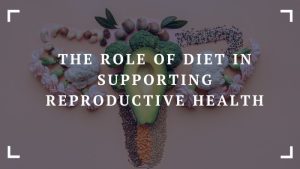
Delving into Healthy Reproductive System, this introduction immerses readers in a unique and compelling narrative, with simple but touching style that is both engaging and thought-provoking from the very first sentence.
Exploring the importance of maintaining a healthy reproductive system, understanding the factors that can affect reproductive health, and discovering tips for optimal well-being.
Importance of a Healthy Reproductive System

Maintaining a healthy reproductive system is crucial for overall well-being and quality of life. A healthy reproductive system not only ensures fertility and the ability to conceive but also plays a significant role in hormonal balance, sexual function, and overall health.
Impact of Lifestyle Choices on Reproductive Health
Our lifestyle choices have a direct impact on the health of our reproductive system. Factors such as diet, exercise, smoking, alcohol consumption, and stress levels can influence reproductive health. For example, a diet rich in nutrients and antioxidants can support reproductive health, while smoking and excessive alcohol intake can negatively affect fertility and hormonal balance.
Contribution to Overall Well-being
A healthy reproductive system contributes to overall well-being by promoting hormonal balance, sexual satisfaction, and emotional health. When our reproductive system is functioning optimally, it can lead to a higher quality of life, improved relationships, and a sense of fulfillment. Taking care of our reproductive health is an essential part of self-care and should not be overlooked.
Factors Affecting Reproductive Health
Environmental factors, genetics, stress, and emotional well-being all play crucial roles in determining the overall health of the reproductive system.
Environmental Factors
Exposure to environmental toxins, such as pesticides, heavy metals, and endocrine-disrupting chemicals, can have detrimental effects on reproductive health. These substances can interfere with hormone production, sperm quality, and menstrual cycles, leading to fertility issues and reproductive disorders.
Genetics
Genetics also significantly impact reproductive system health. Inherited conditions, such as polycystic ovary syndrome (PCOS), endometriosis, and genetic abnormalities affecting sperm production, can increase the risk of infertility and other reproductive problems. Understanding one’s genetic predispositions can help in early detection and management of these conditions.
Stress and Emotional Well-being
Chronic stress and poor emotional well-being can disrupt the delicate balance of hormones involved in reproduction. High levels of stress hormones like cortisol can affect ovulation, sperm production, and overall fertility. Additionally, emotional factors like anxiety, depression, and relationship issues can also impact sexual function and fertility. It is essential to prioritize mental health and seek support when needed to maintain a healthy reproductive system.
Tips for Maintaining a Healthy Reproductive System
Maintaining a healthy reproductive system is crucial for overall well-being. This involves following a balanced diet, engaging in regular exercise, and managing hormonal balance effectively.
Dietary Recommendations for Reproductive Health
Eating a nutritious diet plays a significant role in supporting reproductive health. Include plenty of fruits, vegetables, whole grains, lean proteins, and healthy fats in your meals. Foods rich in antioxidants, such as berries, nuts, and seeds, can help protect reproductive cells from damage. Stay hydrated by drinking an adequate amount of water daily to support optimal reproductive function.
Importance of Regular Exercise
Regular physical activity is essential for promoting a healthy reproductive system. Exercise helps maintain a healthy weight, reduces stress, and improves blood circulation, all of which are beneficial for reproductive health. Aim for at least 30 minutes of moderate exercise most days of the week to support overall well-being.
Strategies for Managing Hormonal Balance
Hormonal balance is crucial for optimal reproductive health. To help manage hormonal levels, focus on stress management techniques such as meditation, yoga, or deep breathing exercises. Getting enough quality sleep is also essential for regulating hormone production. Additionally, consider incorporating adaptogenic herbs like ashwagandha or maca into your routine to support hormonal balance naturally.
Common Reproductive Health Issues
Reproductive health issues can significantly impact individuals’ overall well-being. It is crucial to be aware of common problems, their symptoms, treatment options, and preventive measures to maintain a healthy reproductive system.
Polycystic Ovary Syndrome (PCOS)
PCOS is a common hormonal disorder that affects individuals of reproductive age. Symptoms may include irregular periods, excessive hair growth, acne, and weight gain. Treatment options vary depending on the symptoms and may include lifestyle changes, medication, or surgical intervention.
Endometriosis
Endometriosis is a painful condition where tissue similar to the lining of the uterus grows outside of it. Symptoms may include pelvic pain, heavy periods, and infertility. Treatment options range from pain management to hormone therapy and surgery.
Preventive Measures
- Regular health check-ups with a healthcare provider
- Maintaining a balanced diet and healthy weight
- Engaging in regular physical activity
- Avoiding tobacco and excessive alcohol consumption
- Practicing safe sex and using protection to prevent sexually transmitted infections
Understanding Contraceptives and Birth Control
Contraceptives and birth control play a crucial role in family planning and reproductive health. Let’s delve into the differences between them and explore the various options available.
Types of Contraceptives
Contraceptives are methods used to prevent pregnancy by either blocking the sperm from reaching the egg or inhibiting ovulation. Here are some common types of contraceptives:
- Barrier methods like condoms and diaphragms create a physical barrier to prevent sperm from reaching the egg.
- Hormonal methods such as birth control pills, patches, and injections work by altering hormone levels to prevent ovulation.
- Intrauterine devices (IUDs) are small, T-shaped devices inserted into the uterus to prevent pregnancy.
Importance of Informed Decision-Making
It is essential to make informed decisions when choosing a contraceptive method. Factors such as effectiveness, side effects, ease of use, and personal preferences should be considered. Consulting with a healthcare provider can help you select the most suitable option for your needs.
Reproductive Health and Family Planning

Family planning plays a crucial role in promoting reproductive health by enabling individuals to make informed choices about their sexual and reproductive lives.
The Role of Family Planning in Promoting Reproductive Health
Family planning allows individuals to decide if and when to have children, helping to prevent unintended pregnancies and spacing out births for better maternal and child health outcomes.
Fertility Awareness Methods for Family Planning
One common fertility awareness method is tracking the menstrual cycle to identify fertile days and avoid unprotected intercourse during that time. Other methods include monitoring basal body temperature and cervical mucus changes.
Importance of Open Communication with Healthcare Providers for Family Planning
Open communication with healthcare providers is essential for receiving accurate information about family planning options, including contraceptives and fertility treatments. It also ensures that individuals can make informed decisions based on their unique health needs and preferences.
Final Wrap-Up
As we conclude our discussion on Healthy Reproductive System, it’s evident that taking care of our reproductive health is crucial for overall wellness and quality of life.
Detailed FAQs
How does stress impact reproductive health?
Stress can disrupt hormonal balance, affecting fertility and reproductive system functioning.
What are common reproductive health issues?
Common issues include PCOS, endometriosis, infertility, and sexually transmitted infections.
How can diet support reproductive health?
A balanced diet rich in antioxidants, vitamins, and minerals can promote reproductive health.





